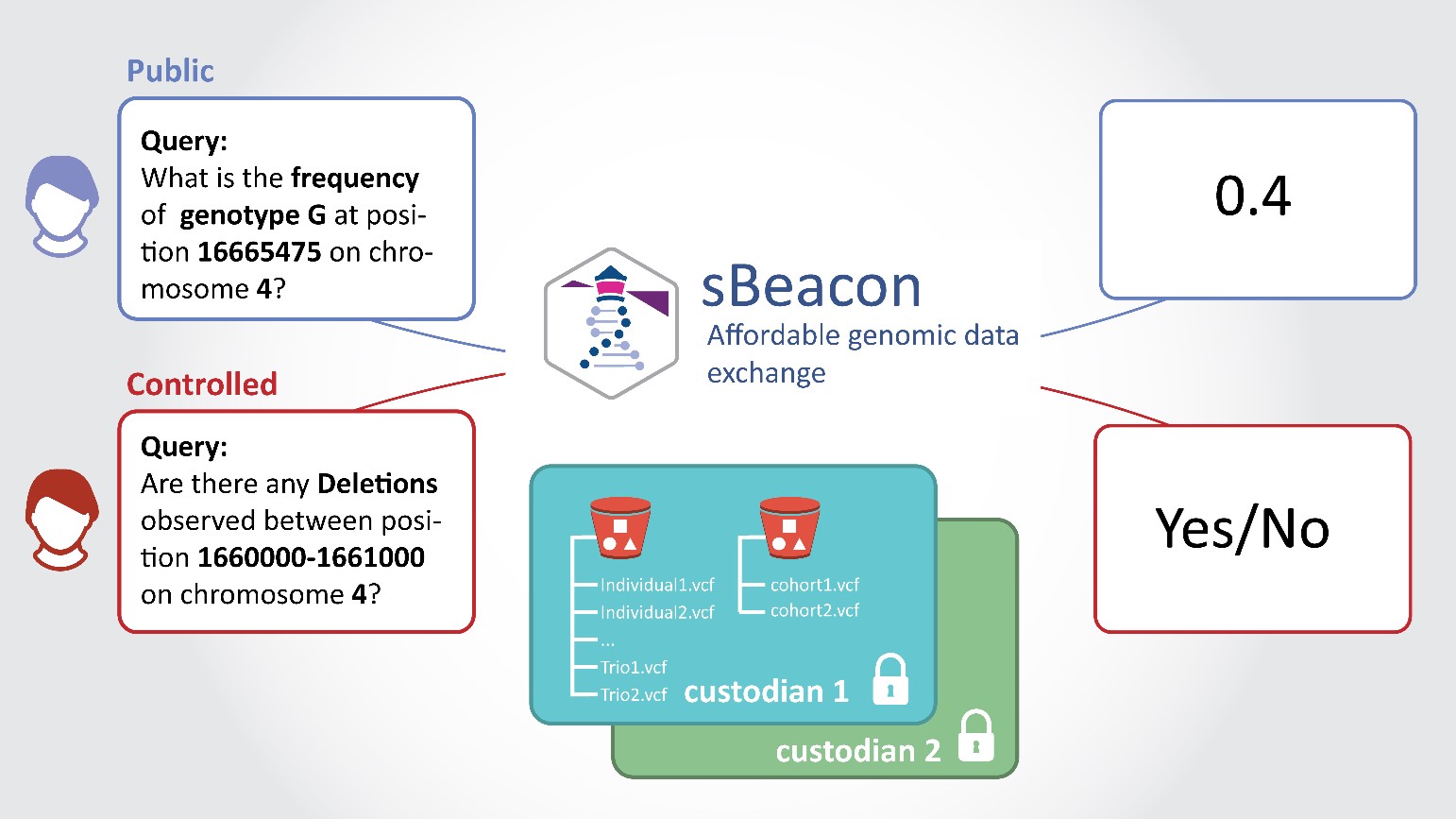sBeacon: Making genomic data-sharing future-ready
![]()
We’ve made Beacon cloud-native to reduce the cost and processing time of sharing genomic data.
The challenge
Sharing genomic data poses logistical and ethical problems in the research space.
The Beacon protocol has emerged as an international standard to ensure that privacy and data ownership are preserved whilst enabling disease research.
However, the current implementation of Beacon by Elixir is not scalable – the cost associated with querying a schema-based local database increases with cohort size. Consequently, only about 150 Beacon services exist worldwide.
Our response
We collaborated with the Australian Genomics Health Alliance and Genomics England to create a fully cloud-native architecture that enables the sharing of genomic data and the preservation of privacy and data ownership.
Utilising AWS function-compute, Beacon is a fully serverless framework and can be automatically deployed in a user’s cloud account. The framework can run over patient-individual VCF files or large cohort VCF files.

sBeacon, cloud-native architecture for faster and more cost-effective genomic data-sharing.
Benefits
Serverless Beacon is 300-fold cheaper and 17-fold faster than the reference Elixir implementation of Beacon.
It does not require data consolidation. This enables distributed multi-institutional collaborations that preserve patient privacy – access to data is file-based and controlled by the data owner.
The framework can segment patient groups on the fly by including only information from relevant individuals, such as filtering by clinical terminology (FHIR).
When not queried, the cloud set-up does not incur cost, making it sustainable for smaller hospitals or research institutes.
Imagine how effective disease research could become if even small hospital or research groups can afford to light up a Beacon and contribute their datasets to the world.

Serverless Beacon is cheaper and faster than the current implementation of Beacon by Elixir.
The Australian e-Health Research Centre (AEHRC) is CSIRO's digital health research program and a joint venture between CSIRO and the Queensland Government. The AEHRC works with state and federal health agencies, clinical research groups and health businesses around Australia.
